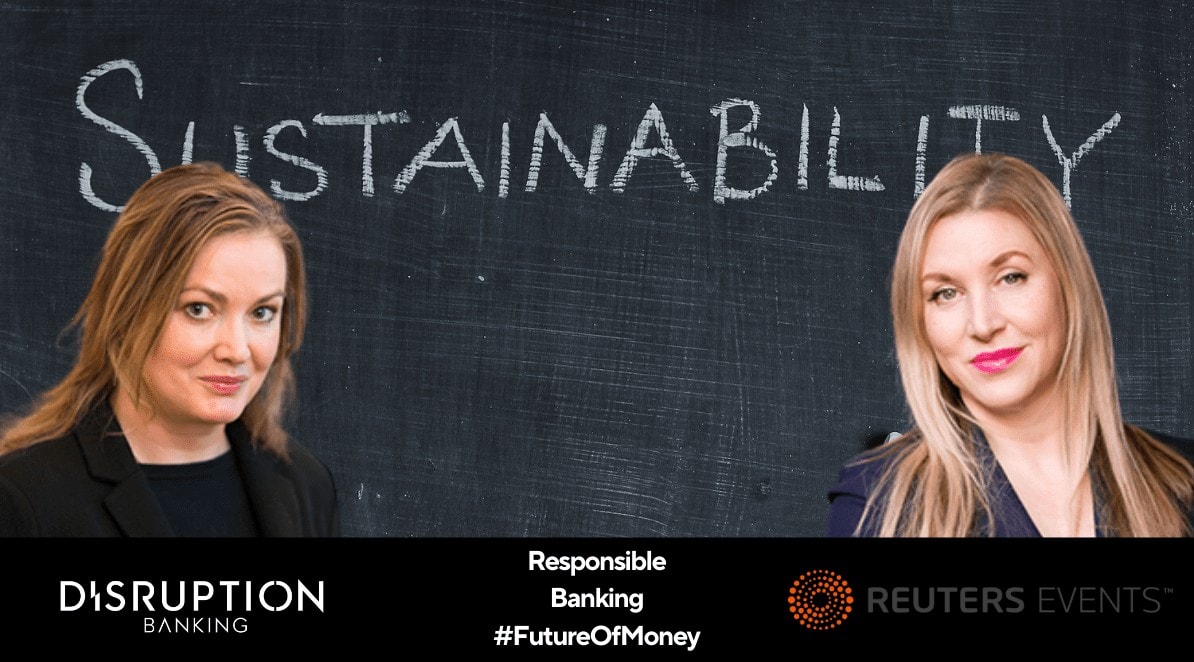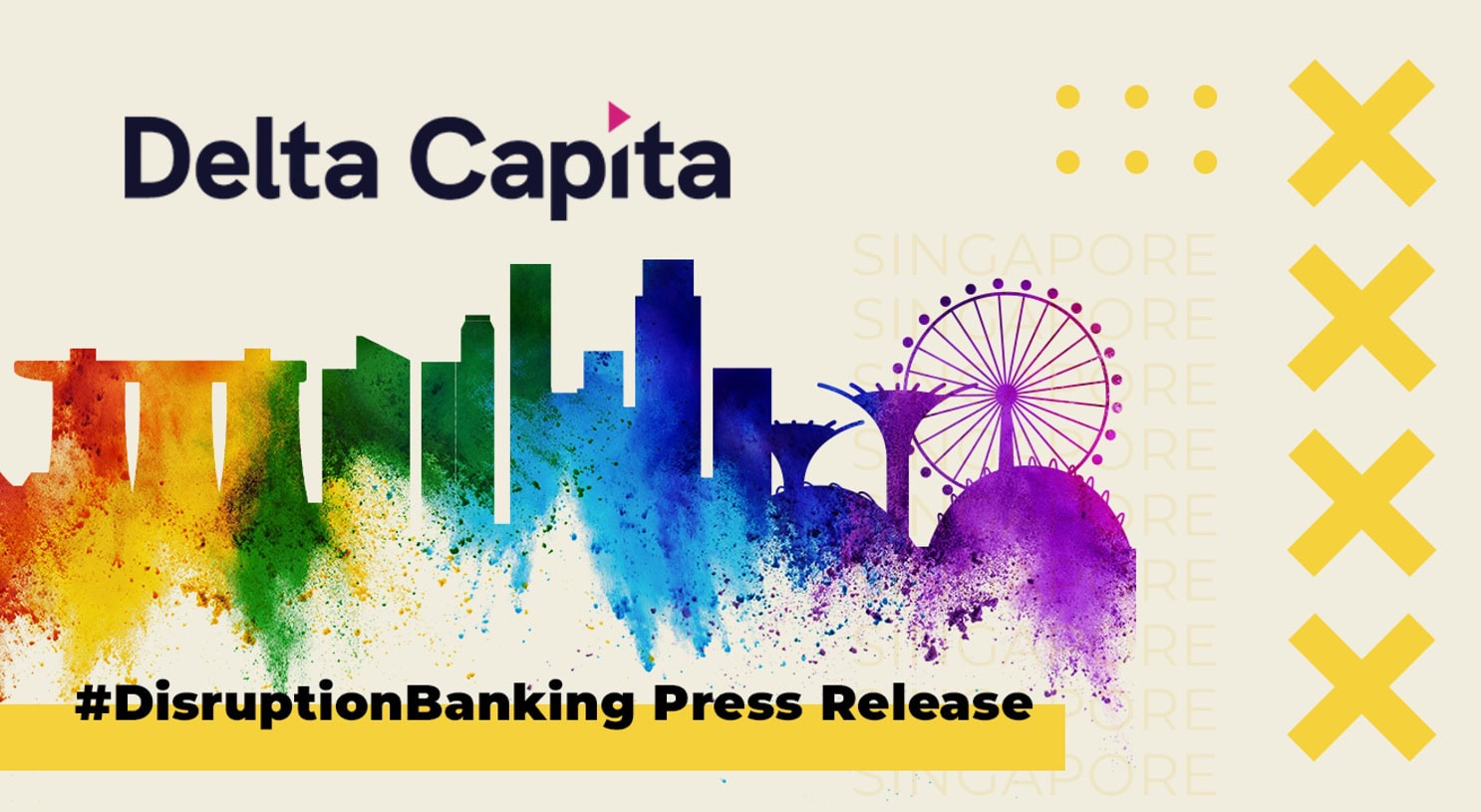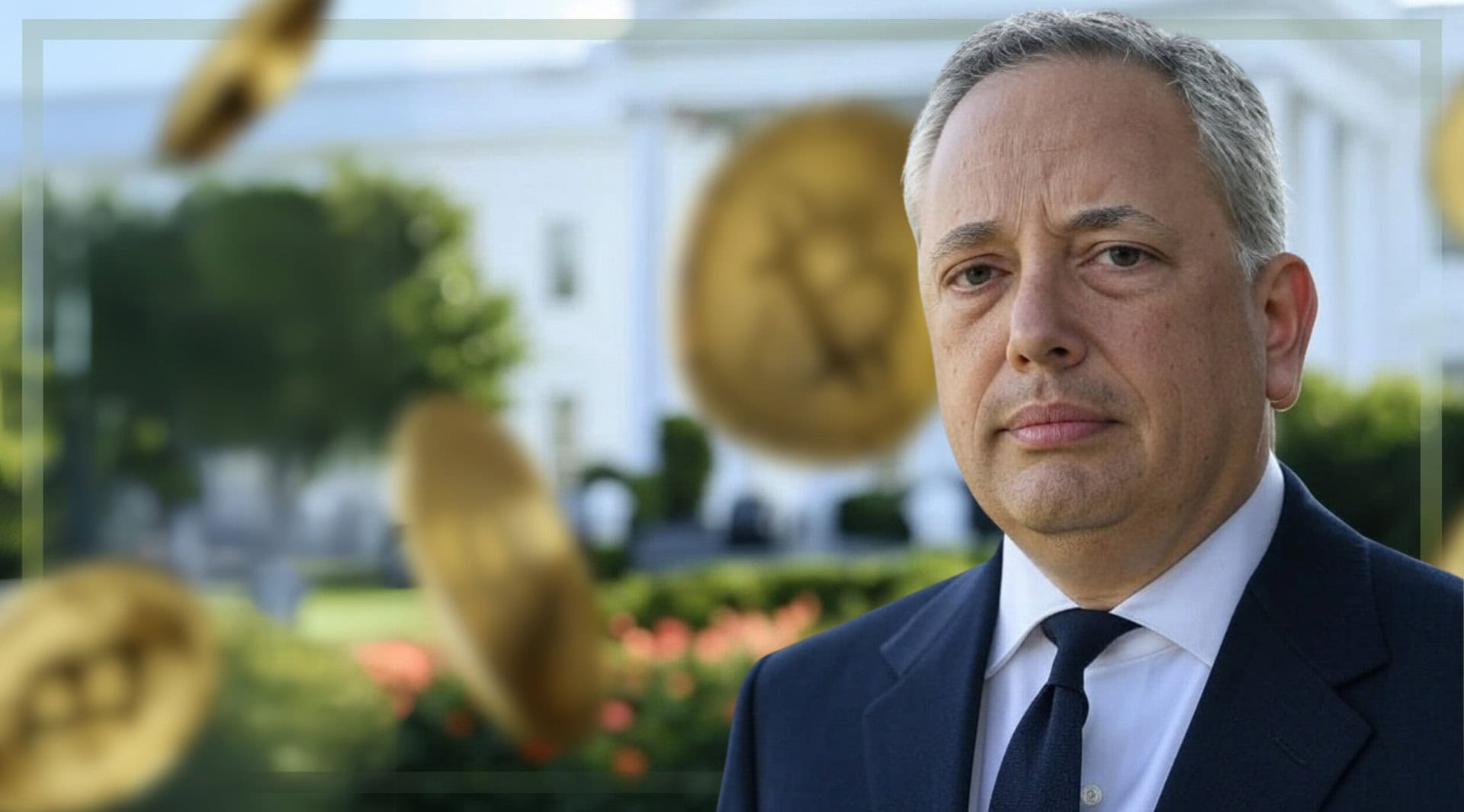Opening the discussion on sustainability yesterday afternoon at Reuters’ Future of Money Event, interviewer Lindsey Rogersons of Thomson Reuters made a fantastic point. After all the grand promises made at COP26 – such as a group led by Mark Carney pledging $130 trillion in private capital to fund the transition to a green economy – “financial institutions now need to live up to the promises they made.” With many sceptical that they will do so, Kelly Fisher from HSBC Bank USA spoke to the event about what her bank is doing to improve its ESG credentials.
"Financial institutions now need to live up to the promises they made at #COP26." Reuters Events turn to #sustainablefinance and #ESG. pic.twitter.com/a7znRJ0A0y
— #DisruptionBanking (@DisruptionBank) December 8, 2021
Fisher began by arguing that, when it comes to climate change, the banking sector has actually proved itself to be more committed than the politicians. In a thinly veiled dig at President Trump, she suggested that “corporate leaders” have demonstrated greater leadership and conviction that some of the States’ leading politicians:
“The past four years has seen a dismantling of a lot of commitments at the federal level in the United States around climate. However, what has been most inspiring for me and probably what got me through those four years, as someone who believes that climate change is the greatest threat facing humanity, has been seeing the way corporations corporate leaders have refused to be a part of that dismantling of the United States’ progress […] More companies based in the United States have made net-zero commitments than anywhere else in the world.”
Fisher also addressed the issue of taxonomy. Many are concerned that banks might commit themselves to improving sustainability but find creative ways in their balance sheets to obscure the fact they have not changed much at all. Greenwashing is a huge problem in many subsectors of the green finance space and is increasingly a concern for retail, as well as institutional, investors. Fisher outlined the steps HSBC took at COP26 to create a common set of rules on what constitutes “sustainability,” rules which would help avert the possibility of greenwashing.
“There are lots of companies who publicly set an intention and make lots of commitments – but then, when you dig into it, they are nowhere near their own targets."
— Digital Startup (@digitalstartup5) July 8, 2021
There are organisations working to improve this too. Find out more about @VolansHQ https://t.co/8i0DE3z18m
“You’re asking a really, really great question about standards about accounting – about reporting all of those things that were discussed at COP. And one of the things that HSBC was a participant of, and actually a leader on, going into COP that is really critical was the Financial Services Task Force. Our CEO co-led that with the Barclays CEO, and leading up to COP we created a “Practitioner’s Guide” for banks. We all came together to create this. That laid out a six point plan for how we’re going to examine our balance sheets, how we’re going to set targets for additions, how we’re going to discuss things like measurement, recording, offsets. All of that was really, really critical, and I think was really important that we achieved that going into COP.”
COP26: HSBC makes green push as it pumps £500m into new fund for SMEs across UK –> https://t.co/zpSm2U5Q5F#COP26 #HSBC #Green #SMEs pic.twitter.com/ODLzjZJJFJ
— City A.M. (@CityAM) November 8, 2021
Finally, Fisher outlined some of the work HSBC is doing to help its clients transition to net-zero. As we previously discussed in our feature with Volans, companies in all kinds of sectors require financing and support in order to become more sustainable. This is not limited to oil and gas companies but stretches across the whole spectrum of business activity. What is HSBC doing to help such businesses?
“We set a goal of reach net-zero emissions by 2050 […] The work is already underway in a really aggressive and impressive way, in the ways in which we work with our clients. HSBC has always been proud of the fact that we bring our clients on the journey with us. So this is about working with them. And I work with amazing bankers who are across many, many sectors that are under pressure to transition. It’s not just energy and oil and gas – it’s apparel, it’s technology, it’s food and beverage. I can tell you, they do sit across most clients, and they do have a transition risk conversation.
“But what I’ve seen that they are so good at, and what I’ve worked so closely with them on, is they’re turning that conversation from a risk conversation to an opportunity conversation. So it’s not about a checklist of ways in which they might get themselves in trouble. It’s a really meaningful, two-way dialogue about how the bank can partner with them, so that they’re around in 50 years, 100 years. So what that has meant for us at HSBC and what I’m really proud of is we’ve become very quickly experts in the sectors in which our clients need to transition.
“For example, we were the only bank to finance the “Apparel Impact Institute” which was created by the Sustainable Apparel Coalition, because we are becoming experts on how to help our apparel clients transition. We are actively getting involved now with a responsible business alliance so that we understand the challenges of technology and automotive. We’re really involved in the sustainability consortium which is across retail and retail sector, but especially food and beverage. So what that means is that I know that when our bankers sit across from those clients, they understand where the clients want to be. It’s a really meaningful dialogue about where that client – where their CEO, but also their Chief Sustainability Officer – wants that client to be long term. We believe that we have the financial solutions that will help them get there.”
Clearly we have reached the stage where – rather than making promises or announcements – banks need to outline what they are actually going to do with regards to green finance. Fisher outlined some interesting first steps: the work that is going on in creating a green taxonomy and in helping corporate clients transition to become more sustainable. Time will tell what impact this will have, and whether the promises made at COP26 will be fulfilled.
Author: Harry Clynch
#ReutersFutureOfMoney #HSBC #ESG #Sustainability #Trump #NetZero #ClimateChange #Taxonomy #COP26 #GreenFinance















